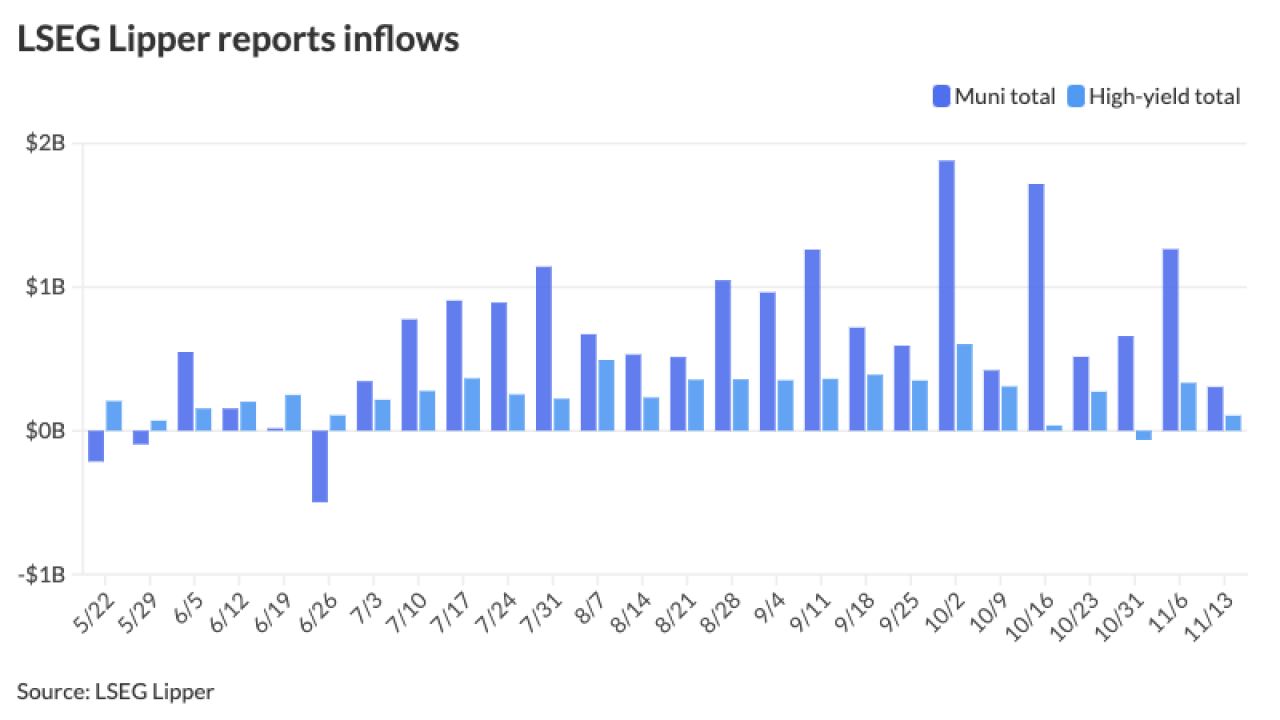
BRADENTON, Fla. — Moody’s Investors Service downgraded Fulton County, Ga.’s water and sewer revenue bonds to Aa3 from Aa2 , citing the system’s weakened financial position and narrowed debt-service coverage.
The move on Monday affects $548.8 million of outstanding long-term debt issued by the county’s enterprise system, which largely serves the area surrounding Atlanta.
“The water and sewer system’s financial position has declined in recent years due to the current recession and the impact of drought-induced declines in system demand,” said analyst Lauren Von Bargen.
Moody’s said its Aa3 rating reflects the water and sewer system’s substantial and diverse customer base, adequate treatment capacity, manageable debt position, and ample liquidity levels.
Patrick O’Connor, Fulton’s finance director, said he was disappointed by the downgrade and felt that Moody’s failed to consider a number of positive factors in its review, including consistently high unrestricted cash reserves averaging $122.9 million over the past four fiscal years.
The county has had a stable finance team for the last 15 years and there has been recent improvement in debt-service coverage, he said. The county plans to refund about $250 million of water and sewer revenue bonds in the next six to eight weeks.
“I made it very, very clear to [Moody’s] that for the next three to five years the county has the cash reserves to internally fund any capital projects,” O’Connor said. “We’re not anticipating any new debt for at least three to five years. We’re in great shape.”
Though the governing board implemented 15% water and sewer rate hikes in June 2008 to offset the prolonged impact of state-imposed drought restrictions, Von Bargen said gross revenues declined significantly. Debt-service coverage declined to 1.35 times in 2008 from 2.1 times in fiscal 2007. In fiscal 2009, coverage declined to 1.11 times.
O’Connor said the county closed its books Dec. 31 and unaudited results show that debt-service coverage in fiscal 2010 has improved to 1.19 times. Covenants require coverage of 1.10 times.
“Moody’s says there’s been a downtrend in debt-service coverage and that’s true,” O’Connor said. “Why set debt-service coverage higher than what is necessary?”
The system provides retail water service to northern Fulton County. It provides retail sewer service to unincorporated regions and wholesale service to five municipalities and three neighboring counties. Treatment capacity is expected to be sufficient for the medium term and recently was boosted by the commissioning of an additional wastewater treatment plant, Von Bargen said.
The county’s principal raw water source, the Chattahoochee River, is a part of a larger river basin shared with Lake Lanier and has been subject to litigation between Georgia, Alabama, and Florida since 1990.
A federal court ruled in July 2009 that the U.S. Army Corps of Engineers, which operates Lake Lanier, exceeded its authority by allowing water supply withdrawals directly from the lake and by making special releases from the lake to accommodate water withdrawals downstream in the Chattahoochee River.
That ruling is being appealed and other strategies are being pursued in hopes of preventing an impact on raw water supplies for Fulton County, Von Bargen said.
“Although the federal ruling does not have an immediate impact on the county’s raw water supply, the failure to secure a favorable resolution could materially affect the system by 2012,” she said. “Moody’s will continue to monitor the progress at the state and federal levels.”
O’Connor plans to ask Moody’s for an upgrade when he makes presentations in several weeks for the upcoming refunding, he said.
Fitch Ratings and Standard & Poor’s each assign a AA-minus to the county’s water and sewer revenue bonds.





